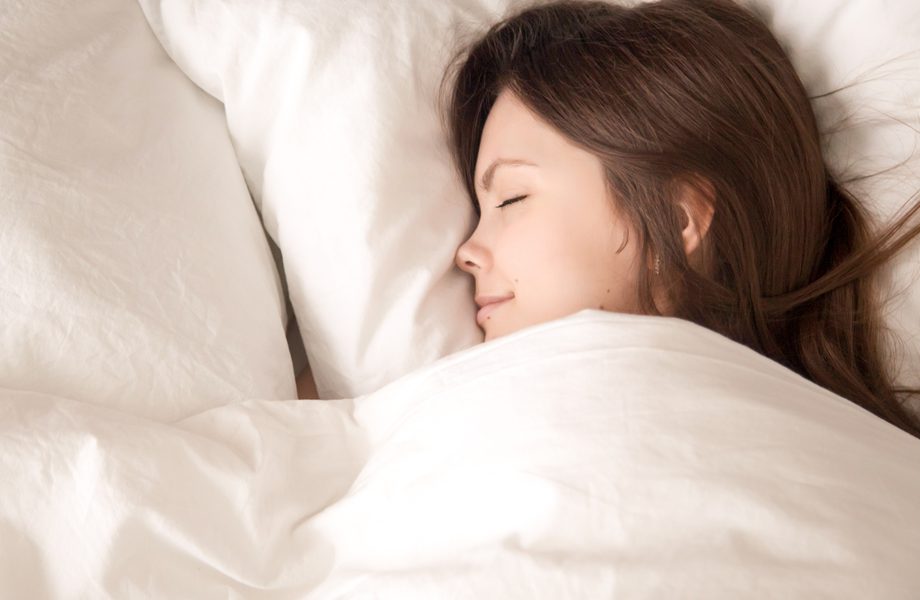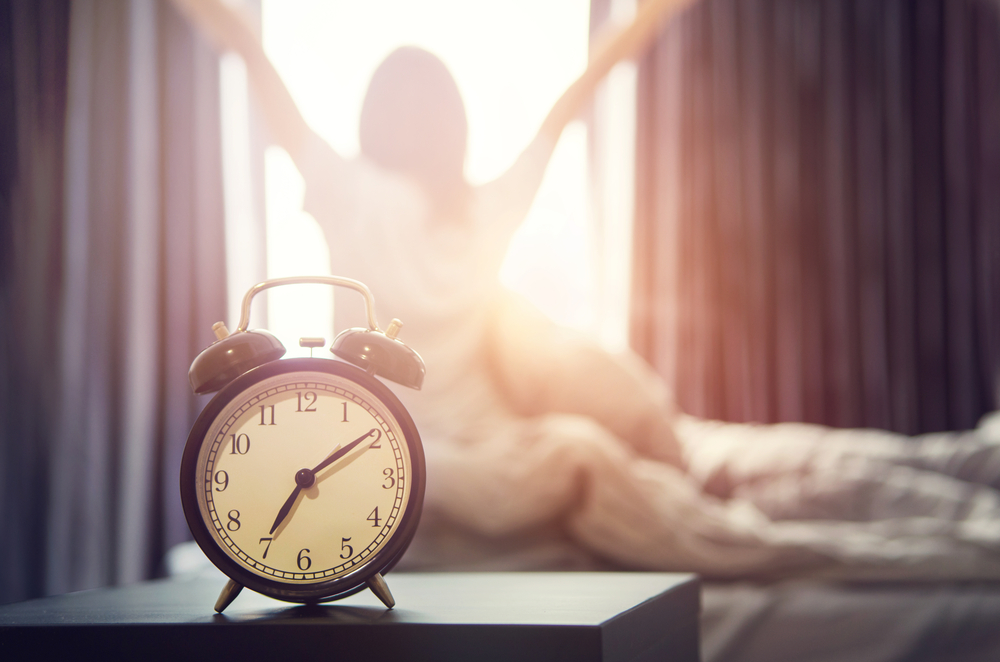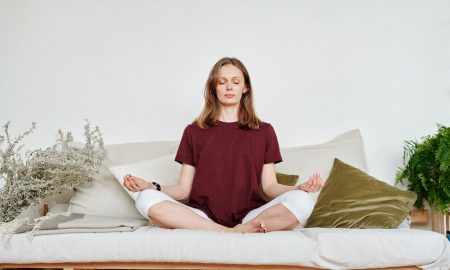
Early-Birds Have a Stronger Mental Health Than Night Owls, Latest Study Reveals

Are you an early bird? Do you love waking yourself early in the morning and start your day? Well then, the health experts have good news for you! Not only early birds tend to be more productive, but new research also reveals they have a lower risk in acquiring mental health issues compared to those night owls. Let us uncover how our sleeping cycle affects our mental health.
The Study
The researchers from the University of Exeter conducted a study on more than 700,000 participants. Together, they pulled their genetic data and surveyed whether they are a morning or evening person. The study’s proponents discovered a repeating pattern between the participants’ preference as well as their genetic makeup. And what they found were disturbing connections linked to mental health problems.

fizkes/Shutterstock
The researchers claim our sleeping pattern plays a vital role in our mental health.
The study shows most night owls have a 10% higher chance to develop schizophrenia compared to early risers. Aside from that, most late risers tend to get more depressed while early risers feel more satisfied and happier with life. They also attribute most night owls are working against their body clock – causing them to slump and feel exhausted as they go to school or work.
How to Wake Up Early?
While the researchers say it isn’t easy for night owls to sleep and wake up early, it can certainly be done through consistency until you develop a habit. The health experts recommend that you apply these tips to become an active early riser and increase your productivity while protecting your overall mental health.
The 30-Minute Earlier Method
Since it’s difficult for night owls to sleep early abruptly, the health experts recommend you do it gradually until you get used to your new schedule. For example, if you usually sleep around midnight and you wake up at 8 a.m, start sleeping around 11:30 p.m and wake up at 7:30 a.m. a for a week or two.

oatawa/Shutterstock
Gradually push your sleeping schedule back until you can sleep on your internal clock again.
Once you’re accustomed to a new schedule, push your plan for another 30 minutes at 11 p.m. Continue doing this until you’ve hit your ideal sleeping and waking time and stick to it.
Keep Your Environment Cozy and Dark
To help lull yourself to sleep, the experts recommend you keep your room cozy and dark. For example, you can turn on your air conditioner 30 minutes before your sleeping schedule so that by the time you walk in, it’ll be cold enough for you to sleep comfortably.
Another thing, make sure you block all sources of light coming from your TV’s red power button down to your laptop and mobile phone screens. According to studies, the blue light emitted from these devices disrupts the production of melatonin – a hormone responsible for promoting your sleep cycle. When you lie on your bed, it’s crucial not to do anything that’ll activate your brain’s alertness.
Take a Nap Earlier
Are you feeling sleepy? Before you give in to have that little nap, the experts recommend you should time in your rest earlier. Either you can do it on lunch or not later than seven hours after you wake up. Why?

iniStocker/Shutterstock
Make sure to nap earlier so that it won’t interrupt your sleeping schedule.
It’s because if you nap later, you tend to receive a burst of energy through the night – making it difficult for you to sleep. Instead, take a nap during your lunch break so that you can use that energy at work. By the time you get home, your power is running low until you sleep.
Try Camping For a Week
The experts recommend you take a break from a busy urban life and reconnect with nature by going camping. Not only it cuts off your communication (and distraction) from the outside world, but you’ll enjoy the breeze of natural wind from trees, you’ll have a wonderful time gazing at the marvelous stars on the sky while lulling yourself to sleep. Most of all, it’ll be easier for you to wake up early by welcoming the sunrise’ gentle light rays.
More in Mind & Mental
-
`
Here’s Everything You Need to Know About Open Relationships
An open relationship is a consensual arrangement where partners agree to engage in romantic or sexual relationships with other people. Unlike...
June 6, 2024 -
`
Explore the Multifaceted Goals of Meditation
What is the goal of meditation? If you have ever found yourself asking this question, you are not alone. Meditation has...
May 31, 2024 -
`
When is National I Love You Day Celebrated? Mark Your Calendar
Life can get hectic, and sometimes amidst the daily grind, we forget to express our love and appreciation for the phenomenal...
May 23, 2024 -
`
When’s the Best Time of Day to Fish?
For any angler, a successful fishing trip hinges on several factors. But one of the most crucial elements is timing. Knowing...
May 14, 2024 -
`
What Mental Illness Does Britney Spears Have? Discovering the Answer
Britney Spears, a name that resonates with millions around the globe, goes far beyond the glitz and glamour of her stardom....
May 7, 2024 -
`
Here Are Some Easy Ways To Say No To Unrealistic Expectations In Your Relationship
If you are in a relationship, you should constantly work on improving it. Some early lovebirds fall in love too quickly...
May 3, 2024 -
`
Therapy? Medication? What Are the Treatments for PTSD
Post-Traumatic Stress Disorder (PTSD) is a common after-effect of traumatic events. It can be a debilitating condition, but the good news...
April 25, 2024 -
`
Courting vs Dating – Which Relationship Path is Right for You?
In today’s fast-paced world, the terms ‘courting’ and ‘dating’ often swirl around in conversations about relationships. While some people may use...
April 23, 2024 -
`
Essential Mexico Travel Tips for a Seamless Adventure
Mexico, a land of vibrant culture, breathtaking landscapes, and mouthwatering cuisine, beckons travelers from across the globe. But before you embark...
April 16, 2024















You must be logged in to post a comment Login